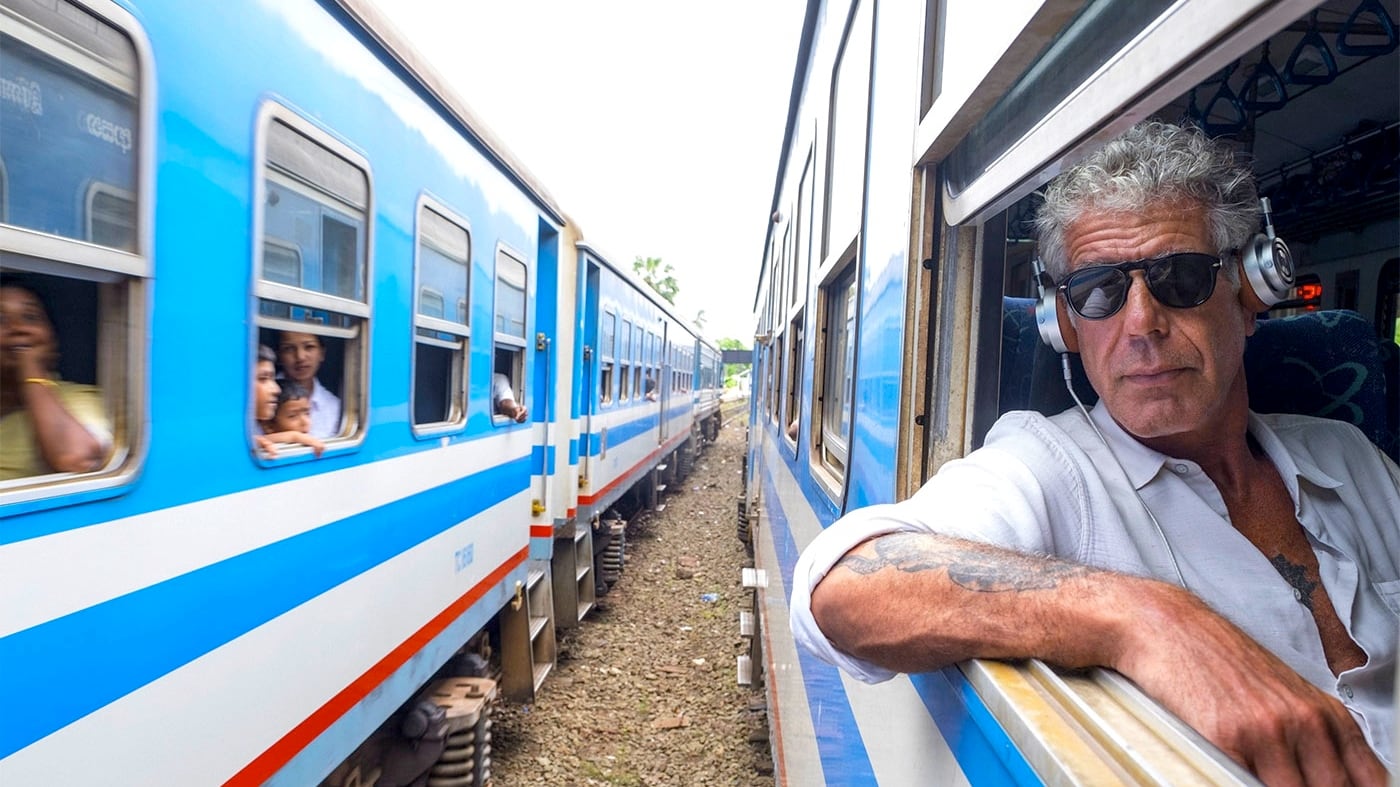Anthony Bourdain had, arguably, the best job in the world. Traveling across the world to try new foods and, more importantly, learn about local culture and politics for his show Parts Unknown afforded the former chef turned bestselling author a certain worldview that left an indelible mark on his legacy. The first of the final episodes of his travel series will premiere Sept. 23 on CNN.
The season 12 premiere, screened at the Tribeca TV Festival, focuses on Bourdain’s travels to Kenya with guest W. Kamau Bell (of United Shades of America). Over local dishes like fried whole tilapia and goat’s head soup, Bell and Bourdain learn about some of the issues plaguing Kenya, like the dominance of secondhand clothes from the U.S. absolutely decimating the Kenyan textile industry, and the delicate balance local wildlife conservatories must maintain between indigenous tribes and international efforts.
While some—most notably the president—continue to view the African continent as a primitive “shithole” devoid of real culture, Bell, himself of African descent, said during a panel after the screening that Bourdain’s approach toward filming the Kenya episode couldn’t have been more different. “He did not see it as one big country. He saw it as lots of different places,” Bell said. “And he was really read into all the issues in ways that most people who do shows like this just aren’t.”
Bourdain’s longtime executive producer Lydia Tenaglia echoed Bell’s statements, saying that after a while, Bourdain eventually “evolved into a cultural anthropologist” as opposed to just a chef-cum-travel host. But Bourdain’s enthusiasm for travel never affected his consideration of the people and culture he was highlighting. Speaking to Bourdain’s legacy, Bell said, “If there’s anything that Tony taught us, it’s how to be a good guest.”
The mood during the screening was alternated between buoyant (Bell’s onscreen attempts to cheerfully stomach a fried goat eyeball and a tribal concoction of fresh cow’s blood and milk were met with laughter) and respectfully somber (a rush of applause followed the episode’s opening sequence). The panel, which included producers from the show and Bell, mostly served to highlight Bourdain’s fearless approach to food and travel, and his dedication to portraying the world’s cultures through his shows; producer Chris Collins referred to Parts Unknown as Bourdain’s “life’s work.”
Bourdain’s not-so-subtle callouts of racism and bigotry were also addressed. “Tony wasn’t afraid of making a statement,” Sandy Zweig, producer and showrunner, said of her late boss. She also added that Bourdain was frequently motivated to travel to politically contentious places, ranging from Russia to West Virginia, aka the heart of Trump country. “Depending on the location, if there was something to say, he would say it,” Zweig explained. “He chose locations for various reasons, and some of them had deeper statements involved, and some were more fun.”
Overall, the show’s producers and Bell were optimistic that Bourdain’s open-hearted, tolerant approach to people and world cultures would persist despite his death. In an uncanny bit of narration filmed before his passing, Bourdain seemingly addressed his privilege in getting to travel and film his exploits through the lens of his personal experiences, often at the expense of the local narratives.

Anthony Bourdain with W. Kamau Bell in the Kibera slums in Nairobi, Kenya on February 25, 2018.
CNNThe final moments of the episode reveal that Bourdain is aware that it’s primarily his story featured on the show—despite the rich histories of the places he goes and people he meets. Of his efforts to highlight this, “I do my best,” Bourdain explains. “I look, I listen. But in the end, I know it’s my story.” Bourdain acknowledges that other stories, like so many of the people’s struggles or even Bell’s story, which was a prominent part of the episode, are “yet to be heard.” Bourdain’s awareness of his own privilege is moving, even more so after his death.
Despite recent controversy surrounding Bourdain’s former partner Asia Argento (and her role in the show’s upcoming season), Parts Unknown director Morgan Fallon praised Bourdain’s dedication to tolerance, as well as his respectful curiosity. Of Bourdain’s approach to traveling, Fallon said it was simply, “Just go in and be human. That’s all it was.”






